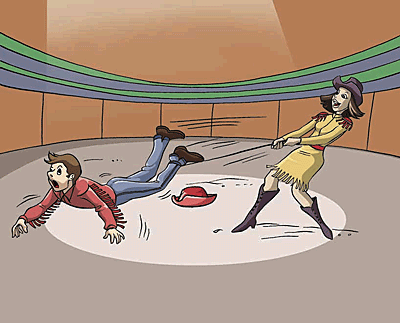ped-, pedi-, -pedal, -ped, -pede, -pedia
(Latin: foot, feet; people often see this ped element in other words. When people refer to "pedal extremities", they mean "feet". When anyone pushes the pedals of a bicycle, it is done with the feet. A pedestrian must use the feet for walking. A quadruped has four feet while a centipede has "100 feet"; or a large number of them because it may be impossible to count all of them.)
2. To remove someone; such as, a President or a judge from public office because of having committed serious crimes and misdemeanors or because of other gross misconduct.
3. To charge someone with a crime or misdemeanor.
4. To question a person's good character.
5. United Kingdom law: to accuse someone of a crime; especially, treason or another crime against the state.
6. Etymology: "to impede, hinder, prevent", from Anglo-French empecher, from Old French empeechier, "hinder" (12th century), from Late Latin impedicare, "to fetter, catch, entangle", from Latin in-, "in" plus pedica, "shackle", from pes (pedis), "foot".
The sense of "accuse a public officer of misconduct" was first recorded in 1568, because of confusion with Latin impetere, "to attack, to accuse".
2. Disposed to or deserving to warrant an accusation or an indictment: The offence committed was certainly impeachable as defined and explained in the constitution.
2. Anyone who challenges the practices or honesty of; to accuse; especially, to bring (a public official) before a proper tribunal or legal authority on a charge of wrong-doing.
Whenever anyone demands that a public official should be impeached, that person usually intends for the official to be immediately removed from office.
This general use of impeach as a synonym of "throw out" does not agree with the legal meaning of the word. When a public official is impeached or formally accused of malfeasance, it is just the beginning of what can be a lengthy process that may or may not lead to the official's removal from office.
Legal usage refers to an official who is impeached (accused), tried, and then convicted or acquitted.
2. Electricity opposition to flow of alternating current; the opposition in an electrical circuit to the flow of alternating current, consisting of resistance and reactance.
3. The ratio of the pressure to the volume displacement at a given surface in a sound-transmitting medium.
4. Opposition to blood flow in the circulatory system.
5. Resistance of an acoustic system to being set in motion.
6. Etymology: formed from Latin impedire, "to entangle, to ensnare, to hinder"; literally, "to put feet into fetters"; from Latin im-, "in", and pedis, "chain for the feet" + -ance, "an action, state, condition".
2. A technique for determining blood vessel occlusion that determines volumetric changes in a limb by measuring changes in its girth as indicated by changes in the electric impedance of mercury-containing polymeric silicone tubes in a pressure cuff.
2. Etymology: impede means "to tangle the feet" or "to obstruct" the movement of the feet.

2. An impeding or hindering agent.
2. Something that impedes the functions or health of the body; a (physical) defect; an affection or malady.
Keep in mind that all of the ped words which you see in English are not always from the Latin "foot" or "feet". There are also some Greek ped words in English which do not mean "foot"! So, don't confuse this Latin element with a Greek pedo- that means "child" or the Greek pedo- which means "ground, soil".
If you want to leave footprints in the sands of time, don’t drag your feet.


